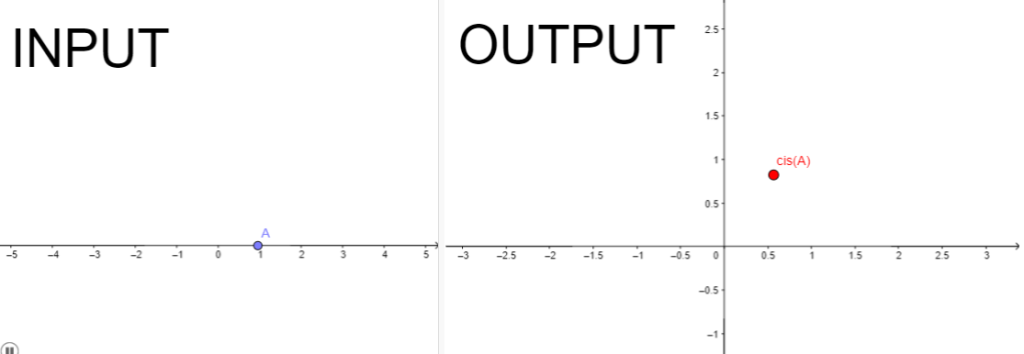I met with some lovely Electrical and Electronic Engineering lecturers yesterday about their various courses and how I can help their students with the maths involved. And of course complex numbers came up, because they do come up in electronics. (I have not the slightest clue how they come up, but I am aware that they do.)
I asked them what notation they used for complex numbers, and they told me about using j instead of i, and then about polar form using either re^{θj} and r∠θ. I told them that the students will have seen the notation r cis(θ) at school for those and I was met with righteous indignation. What a horrible notation! How could anyone think that was a good idea!
It was rather a surprise considering their wonderful openness and friendliness up to this point. But this is not the first time I have been met with this sort of response to cis from more-or-less nice people. Many a mathematician has expressed to me their disdain for this little notation, and I have to say I am bamboozled. Why do people hate it so very much?
I actually rather like cis. I like how cuddly-looking it is with all those curvy letters. I like how wonderfully easy it is to write simply with no special symbols and with no powers that have to be typeset at a higher level than the text. I like how it sounds like you’re singling out one of your many sisters when you say it aloud.
I think cis(θ) is friendlier than e^{iθ} because it doesn’t require you to suddenly believe that imaginary powers of real numbers are a thing and believe they ought to be this unusual combination of cos and sin. I think it’s also friendlier than ∠θ because we’re not co-opting a symbol we saw in geometry for a new and strange usage. (Not to mention the fierce pointiness of ∠ compared to the cuddly roundness of cis.)
Finally, the thing I like the most is how cis(θ) is a function that takes real numbers and produces complex numbers, and those numbers are on the unit circle. For me It’s such a nice thing right from the start to recognise that there are such things as functions that produce complex-number outputs, and that they can have rules to manipulate them just like ordinary functions. Indeed, writing it with a multiple-letter name like all their other familiar functions forges this lovely connection. I also love that multiplying a complex number by cis(θ) rotates it around the origin θ anticlockwise, because of course it does since cis(θ) is a position on a circle. (If anything, I think it wouldn’t hurt it if we renamed it “cir” to highlight its connection to a circle rather than highlighting its connection to cos and i and sin, even if that means losing its familial pronunciation and a little roundness.)
Here’s a little geogebra applet to play with cis as a function from the real numbers to the complex numbers: https://ggbm.at/MWnm5TJA
I know it hides the thing about complex powers of real numbers, but I think it’s important to hide that for a bit, lest the e^{iθ} feels too much like a fancy trick. Plus I think it’s good to be familiar with this friendly little function for a while before discovering that it also solves a problem of complex powers. Indeed, I would love it if students were familiar with this friendly little function even before introducing the concept of polar form.
So there are the reasons why I actually rather like cis. But there is one more reason I think mathematicians and professional maths users shouldn’t hate on cis: because it means hating on the students themselves. Our students put a lot of effort into understanding cis, and to loudly announce how much you hate it is telling them that they wasted all that effort and that their way of doing things is less sophisticated and babyish. Not the best way to start your relationship with them as their university teacher. I’d prefer it if people started off with acknowledging the coolness cis and then pointed out that the other notations are more convenient for doing what they want to do, or allow them to write formulas in more magical-looking ways, or allow them to do some cool stuff with powers. Then maybe we might not get them offside early in the piece.
So please, stop hating on cis(θ)!

